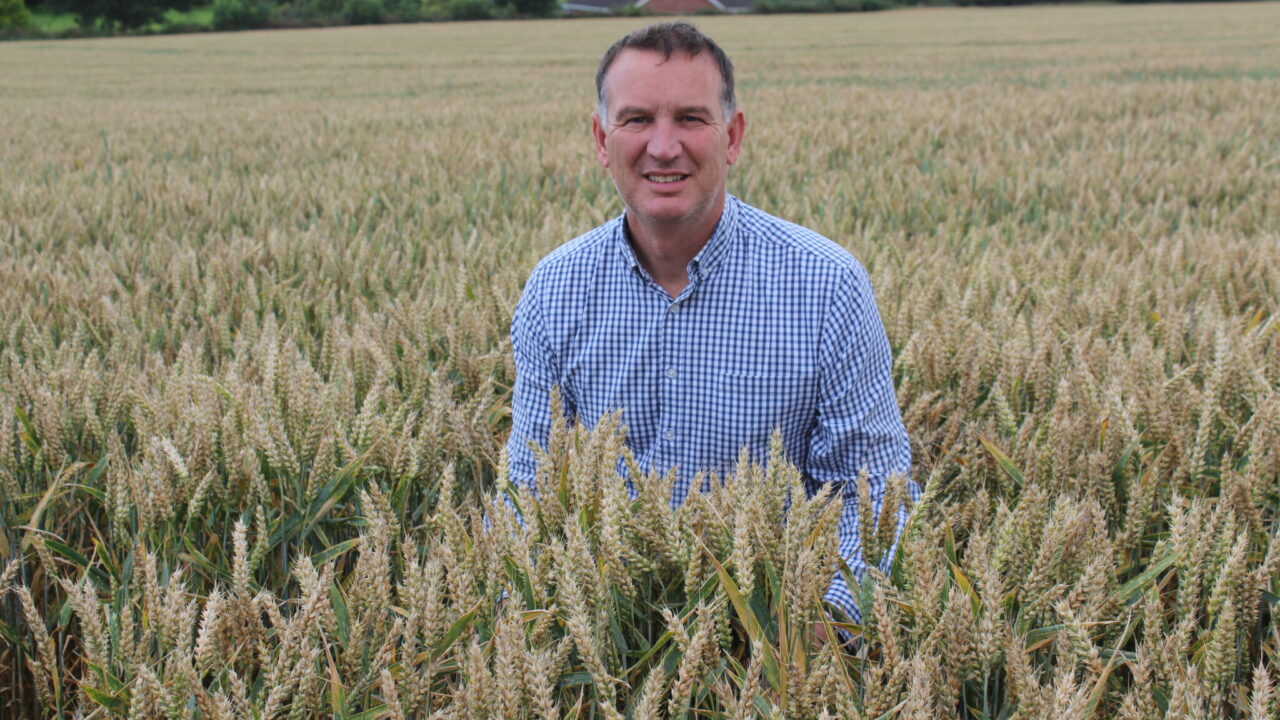The lack of Barley Yellow Dwarf Virus (BYDV) infection within winter cereal crops has been as a major boost to harvest 2025 in Northern Ireland, according to an agronomist who works with a number of clients in the north Co. Antrim area.
Richard Owens told Agriland: “The threat of BYDV would have been a clear risk last autumn given the very mild weather conditions prevailing at that time.
“But, as it has turned out, the impact of the virus was minimal; a fact reflected in the yields that growers have achieved over recent weeks.”
The agronomist noted that, “apart from a few pockets of spring barley”, Harvest 2025 is now wrapped up.
“Winter barley and wheat yields have been exceptionally good. Barleys in the north Antrim area were in the range 3-4t/ac with all growers confirming an increase in crop performance, year-on-year.
“Where wheat is concerned, a number of 4t/ac plus crops were harvested. Straw yields from winter crops have been excellent.
“From what I can gather, Take-All was not that big of an issue during the 2024/25 season. However, yellow rust was a challenge in wheat crops earlier in the spring,” Owens said.
BYDV tolerance
According to the agronomist, the greater availability of winter barley varieties with a tolerance to BYDV is a very positive development.
He said: “This is a very encouraging trend for the future.
“It’s a long time since I can remember the cereal harvest being wrapped up so early in the season.
“Given that weather conditions are remaining good, a number of farmers are currently sowing out a proportion of their cereal ground in grass, as a means of giving the ground a rest.
“Others are planting cover crops in preparation for a spring cereal in 2026.”
Meanwhile, many parts of Northern Ireland have received their first rain of note in over a month in recent days.
And the changeable theme to the weather looks set to take precedence over the next week, with heavy showers are expected through to the weekend and beyond.
The rain will provide much-needed moisture for growers wanting to establish cover crops and winter oilseed rape crops.
It looks likely to remain unsettled during the first week of September.
Low pressure will remaining nearby, generating predominantly westerly airflow over Ireland.
Rainfall amounts will remain above normal as a result, with the wettest conditions likely in western coastal areas.
Temperatures will decrease slightly, returning to around normal.

